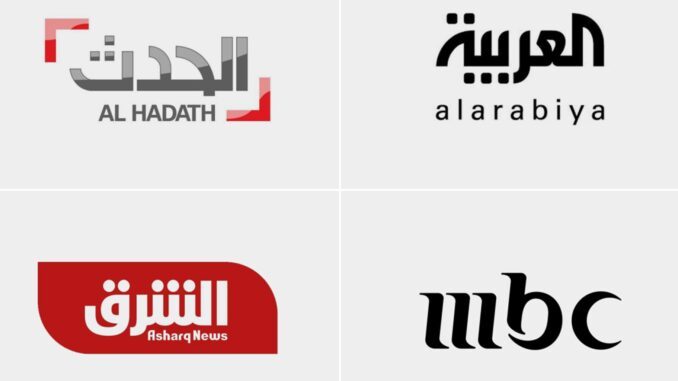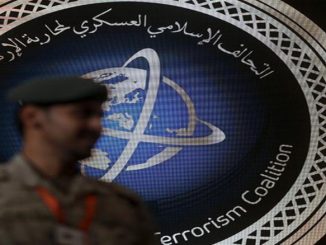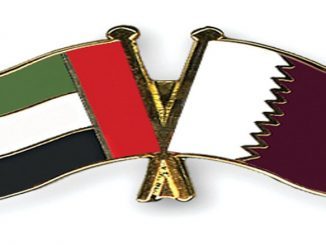
State-owned Saudi media companies based in Dubai will start moving staff this month to Riyadh, as Crown Prince Mohammed Bin Salman pushes ahead with his plans to turn the kingdom into a regional business center.
This move comes in the wake of the Saudi government’s decision to stop granting government contracts to companies and commercial establishments based in other countries in the Middle East.
Two other sources told Reuters that the state-owned Al Arabiya and Al Hadath channels informed their employees this week of plans to start broadcasting 12 hours a day from Riyadh by next January, adding that it may take up to two years to complete the transfer.
The sources disclosed that MBC Group, the largest media company in the Middle East, and Asharq News, a newly-established television news channel, also internally discussed plans to move to Riyadh.
The Saudi government acquired a majority stake in MBC Group when the authorities seized assets of those prosecuted in an anti-corruption investigation in 2018.
The headquarters of MBC, Al Arabiya and Al Hadath are located in Dubai Media City (the UAE’s media center), which includes hundreds of media companies and most of their headquarters in the Middle East. Asharq is based in the Dubai International Financial Centre.
Al Arabiya and Al Hadath did not respond to requests for comment. However, MBC confirmed in a statement sent to Reuters that in February 2020, the group’s president announced the intention to establish new headquarters in Riyadh that will include establishing a business and production center.
“Our plans are on the right track,” the statement added.
Earlier this week, Bloomberg talked about plans to relocate media companies.
Despite being close allies, Saudi Arabia and the neighboring Emirates are competing to attract investors and companies, and are adopting plans to diversify their economies beyond oil production.
The two countries’ interests have increasingly diverged over the past few years, as have their views on issues in the region, including ties with Israel and Turkey.
A blow to Dubai
Saudi news channels have been instructed to begin transferring their operations from Dubai to Riyadh as part of a drive by Crown Prince Mohammed Bin Salman to turn the Saudi capital into a major business hub to rival the UAE.
Staff at Al Arabiya and Al Hadath, two prominent Saudi news channels, which operate under the same media umbrella, were told on Monday to move their headquarters out of the Dubai Media City, home to global and local media companies, to Riyadh. The move is expected to happen in stages over a period of six months.
Saudi owned MBC Group, the largest broadcaster in the Middle East and North Africa, has also said that its plan announced last year to set up a new headquarters in Riyadh was on track but added that it will maintain a “strong regional presence.”
Other news channels are expected to follow suit especially as from the start of 2024 the Saudi government and state-backed institutions will stop signing contracts with foreign companies that base their Middle East headquarters in any other country in the region.
Monday’s instruction is part of Bin Salman’s broader campaign to turn Riyadh into a major business hub that rivals the UAE. In addition to giving foreign companies an ultimatum to establish their regional headquarters in Riyadh if they want to do business in the kingdom, Saudi Arabia has amended trade rules that undermine the interests of Abu Dhabi.
The flight of media groups will be a major blow to Dubai Media City. Al Arabiya was said to be renting the largest studio at a cost of $700,000. Also, workers in the Saudi channels represent the largest wage block in Dubai, which will mean other sectors like real estate will be impacted.
It is not clear what long-term repercussions this will have in relations between Riyadh and Abu Dhabi. Until recently the two countries saw eye to eye in most regional matters. However cracks have started to appear, beginning in 2019 when the UAE withdrew most of its military forces from Yemen, leaving Saudi Arabia alone in its war against Iran-backed Houthis. The Emirates was also found to be backing a rival government in Yemen.
Other major sources of tension are said to be the speed of Saudi-led efforts to end the trade and travel embargo on Qatar, about which Abu Dhabi is not pleased, while Riyadh is equally frustrated over the pace of UAE normalization with Israel.
In a sign that the region was heading for a geo-political reset, Saudi Arabia and Qatar signed an agreement last week to establish a coordination council in an effort to improve relations between the Gulf states.



